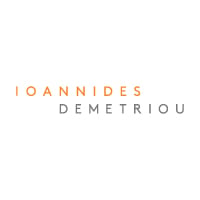

Group chief legal officer | Grivalia Hospitality





Harry Anastaselos
Group chief legal officer | Grivalia Hospitality
Team size: Nine
Major legal advisors: KLC Law firm
Bio
Harry Anastaselos currently holds the position of group chief legal officer of Grivalia Hospitality, a leading investment company focusing on the Greek ultra-luxury hospitality segment, heading the legal and corporate governance affairs of the group consisting of 50 entities. He also serves as corporate secretary, vice-chairman of its executive committee, as well as board of directors’ member in several subsidiaries. He is also an equity partner and sits at the board of Grivalia Management Company, overseeing its legal affairs. Grivalia Management is a privately held company that manages around €2bn of estate assets on behalf of Eurobank. Between 2010 and 2019, Harry held the position of head of legal and corporate secretary of the listed Grivalia Properties, owner of around €1bn of commercial estate assets.
Throughout his career, he has been actively involved and supported a series of successful investments of north of €1bn that spanned through different estate asset classes, often involving complex structures with cross-border elements, joint venture agreements and international hotel management agreements. He has been practising law since 2003.
Harry holds a bachelor’s in law from Aristotle University of Thessaloniki and two Master of Laws (LLM), in Financial Law from Goethe University of Frankfurt (Institute for Law and Finance) and in Public International Law (emphasis on International Economic Law) from the London School of Economics. He has also attended several management & leadership courses, while he is continuously seeking new intellectual challenges.
How do you approach managing legal aspects during periods of instability or crises, and how does your legal strategy align with the broader business strategy to ensure the organisation’s resilience?
The legal function of an organisation is key to successfully managing business adversity. We identify the following as the main aspects of our role in fostering organisational resilience:
We prepare for a crisis, since, at the business operational level we ensure the legal soundness and robustness of the framework that the organisation has in place both for securing business continuity and, at the same time, for safeguarding undisrupted legal / regulatory compliance despite the added challenges. Also, at the legal team organisational level, the lean in-house structure we have created, together with our established pool of select trusted external counsel, allows us to readily shift role allocation and focus to newly emergent needs.
Our team employs all tools required to react to a crisis. We monitor legal and regulatory developments to ensure compliance, we support the organisation in containing losses by revising existing contractual arrangements and tailoring new ones to the new needs, we proactively prepare for litigation in cases we identify as potentially problematic.
Above all, we go beyond just aligning with revised business strategy, as we help create business strategy in response to a crisis, capitalising on our inherent role as focal contact point where all other business functions converge. Our time-long understanding of the workings and needs of all departments allows us to act as a link that fosters interdepartmental collaboration and sharing of valuable information, which lies at the heart of achieving a holistic response to any change facing a business.
What emerging technologies do you see as having the most significant impact on the legal profession in the near future, and how do you stay updated on these developments?
AI is undeniably the next big thing in the legal services sector. When it comes to legal operations, Generative AI has the potential to disrupt the entire foundations of the legal market. We are closely monitoring the developments, attending AI related seminars and workshops and we have also turned to a big four firm to assess our legal processes/operations and recommend to us suitable AI- based software on cost-benefit analysis given that the early technological adoption always presents serious challenges.
In your opinion, what are the main trends that are salient in your country currently (these can be legal, political, economy or business-based)?
Greece, following its exit from a prolonged economic crisis, has entered a growth trajectory, which in turn has led to significant changes in the business environment as well as in social habits. This is especially evident in the touristic sector which is rapidly growing. Greece, with more than 14,000 kilometres of coastline relies heavily in tourism which contributes 28.5 billion euro or 13.5% of the country’s GDP. The adoption of Law No. 5092/2024 regulating the concession of beaches is perhaps the most characteristic example of the prevailing trend to boost the economic growth while at the same time safeguarding the environment and securing social cohesion and free access of the citizens to public use goods such as the enjoyment of beaches.
Law No. 5092/2024 seeks to demonstrate that economic freedom on the one hand and the environment and citizens’ free access on the other are not inherently conflicting legally protected rights where the protection of one automatically undermines the other. This balancing act represents a significant innovation and a major challenge as well, especially as the rapid economic growth increases disparity between the citizens in terms of disposable income and puts social cohesion to stress. We estimate that more laws with a similar balancing role will be implemented soon.
Chief legal officer, BoD member | Grivalia Management Company